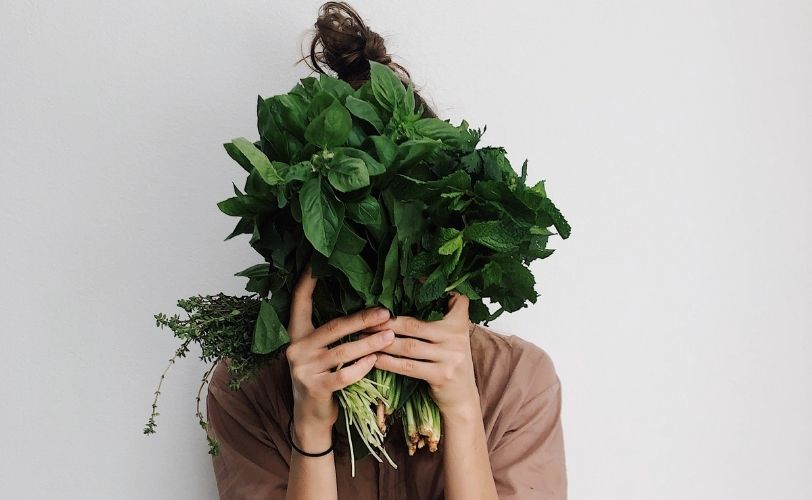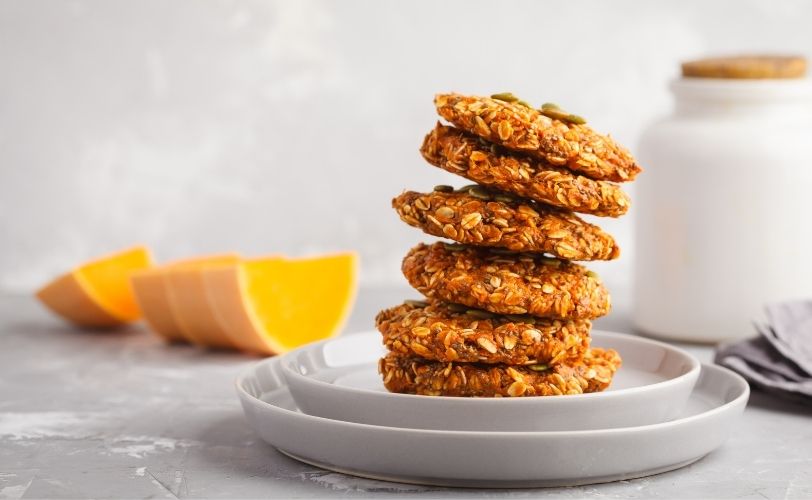Is Veganuary a fad, or should I give it a try?
‘New year, new you’ is a sentiment that fills headlines and articles across the holiday season, yet for many of us, the pressure to make that one big change can feel overwhelming.

New year resolutions can be a great motivator to make positive changes in our lives, but are January challenges really that sustainable? Do (well-intending) ideas like Dry January, Run Every Day (RED), and Veganuary help us to make sustainable changes in our lives, or can they risk being a bit of a flash in the pan that’s forgotten by Valentine’s Day?
What are the benefits of going vegan or vegetarian?
Becoming a vegetarian or going vegan can still allow you to have a healthy, balanced diet. Some people find it tricky to ensure that they are still having all of the necessary vitamins, minerals, and nutrients they need, but with a little planning, it’s still possible to get everything you need from a plant-based diet.
It’s important to remember that simply cutting out any food groups (including animal products) from your diet is not a shortcut to a healthier lifestyle. Many vegan and vegetarian-friendly foods and snacks can be just as unhealthy as their meat or dairy-containing counterparts, with high levels of processed ingredients, sugar or sweeteners. If you are looking to make a switch purely for health-related reasons, focusing instead on having a balanced diet may be an option worth considering.
If you are keen on going vegan, the good news is that focusing on having a primarily plant-based diet can help you to have healthier levels of fruit, veg, and whole grains, as well as lower levels of saturated fat and high-sugar drinks. According to research, vegetarians and vegans are less likely to develop heart disease, high cholesterol, and type 2 diabetes. Discover more about the benefits of a vegetarian diet.

Is there a good ‘in-between’ option without going vegetarian or vegan?
If you struggle with giving up all meat and dairy, you can still make small changes to your diet to incorporate more plant-based elements without committing to going vegan. Flexitarianism is a way of cutting back, not cutting out meat.
According to statistics, 40% of us are now spending at least £25 each week on meat-free alternatives, thanks to a rise in flexitarian diets. Just cutting meat from one or two meals a week can have a significant environmental impact (as well as affecting your overall health and well-being).
Focusing on avoiding certain unhealthy foods such as processed meats (bacon, sausage, ham), refined carbs (white bread or white rice), and drinks with added sugar, unlike with other diets, flexitarianism doesn’t outright ban food. Instead, it recommends going for quality over quantity by switching to leaner meat options and plant-based sources of protein such as nuts, lentils, and beans.
Switching to a flexitarian way of eating can help your physical health in a wide variety of ways, including decreasing your cholesterol, lowering your risk of type 2 diabetes and heart disease, as well as helping with weight loss.
Are there any risks in eating less meat or dairy?
If you’re thinking of cutting back or excluding any foods that you have previously eaten, you may need to be a little more careful with your meal planning to begin with. Particular areas to look out for include:
Ensuring you are consuming enough iron and zinc. If you’re reducing your red meat, it’s important to include alternative sources of iron such as kale and spinach. Having more dark, leafy greens, nuts, seeds, and legumes can all provide a boost to your iron and zinc intake. Increasing your vitamin C can also help you to better absorb iron from plant-based foods.
Increasing your omega-3 fatty acids. If you’ve previously been a fan of fish and are thinking of cutting back, it may be worth incorporating more flaxseeds and walnuts into your diet, as these can provide a good alternative source of omega-3.
Consider supplements. Some vitamins and minerals such as B12 aren’t generally found in plant-based foods. Taking vitamin supplements can help to make up for this deficiency, as can switching to fortified breakfast cereals, soy, almond, or rice milk.

How to make sustainable changes and choices
No matter why you’re looking to make a change, be it for your own health, the environment, animals, or another reason, making small, gradual changes can help you to create a more sustainable lifestyle. It can be tempting to throw yourself into an all-or-nothing mindset, but this can risk stumbling at the first hurdle, as a little slip may seem insurmountable.
As Dr Laura Wyness (PhD, MSc, BSc, RNutr) explains, “Fad diets or diets that are restrictive are unlikely to be sustainable in the longer-term. However, making small positive changes can make a huge difference over time. We are often attracted by a quick fix. Making small changes and some better choices each day can make a big difference over the course of several weeks, months or even years. These changes may be a little challenging to begin with, [but] will soon become a habit and therefore much easier to follow in the longer-term.”
If you’re unsure how to get started, focusing on eating five or more portions of fruit and vegetables each day, choosing wholemeal pasta or bread, and brown rice can all be great places to start. Increase how much water you are drinking, and try to decrease your caffeine intake (or limit it to earlier in the day, to avoid it interrupting your sleeping habits at night).
Making sure you are still getting enough sources of protein, such as through nuts and seeds if you are cutting back on your dairy or meat intake, is also an important part of ensuring you feel fuller for longer.

Find a nutritionist dealing with Healthy eating
All nutrition professionals are verified





